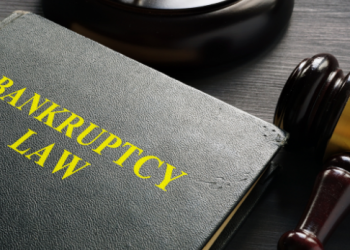Debt collection laws are laws that regulate the actions that debt collectors can take when trying to collect a debt. These laws vary by country and state, but generally, they outline what debt collectors can and cannot do, as well as consumers’ rights when it comes to debt collection.
- In the United States, the Fair Debt Collection Practices Act (FDCPA) is a federal law that regulates the actions of debt collectors. It prohibits debt collectors from engaging in certain practices, such as making false or misleading statements, using threats of violence or harm, and contacting consumers at inconvenient times or places. It also gives consumers the right to dispute a debt, request validation of a debt, and request that a debt collector stop contacting them.
- Consumers also have rights under the Consumer Financial Protection Act (CFPA) which provides a broad range of consumer protections for consumer financial products and services, such as credit cards, mortgages, and other loans.
- In addition to federal laws, some states have their own debt collection laws that provide additional protections for consumers.
- Consumers have the right to know what they owe and who they owe it to, and the right to dispute a debt if they believe it is not their debt or the amount is incorrect. Consumers also have the right to request that a debt collector stop contacting them by sending a written notice. Once the notice is received, debt collectors are prohibited from contacting the consumer except to notify them that collection efforts have been stopped, or that they will take a specific action such as filing a lawsuit.
It’s important to be aware of your rights as a consumer when it comes to debt collection and to understand the laws that protect you. If you believe that a debt collector has violated your rights, you can file a complaint with the Consumer Financial Protection Bureau (CFPB) or the Federal Trade Commission (FTC).
State-Specific Debt Collection Laws;
In addition to federal laws such as the Fair Debt Collection Practices Act (FDCPA) and the Consumer Financial Protection Act (CFPA), some states have their own debt collection laws that provide additional protections for consumers. These state-specific debt collection laws can vary widely depending on the state, and some states have laws that are more restrictive than the FDCPA.
For example, some states may have stricter restrictions on when and how debt collectors can contact consumers, or may prohibit certain types of collection activities altogether. Some states may also provide additional remedies for consumers who have been subjected to illegal collection practices, such as the right to sue for damages.
It’s important to be aware of the debt collection laws that apply in your state, as they can provide additional protections beyond those provided by federal laws. You can check with your state attorney general’s office, or with a consumer protection agency, to find out more about the debt collection laws in your state.
Additionally, some states also provide different time limitations for when a debt is considered as expired, and after that time, the debt collectors can’t take any legal action. Consumers should be aware of the state-specific laws and keep track of the time limitations for the debts they owe, as these laws can vary depending on the state where they reside. Biweeky pay is one of the the most commonly used pay periods by business owners or employees.
Consumers’ Rights in Debt Collection;
Consumers have certain rights when it comes to debt collection, including the right to:
- Know what they owe: Consumers have the right to know how much they owe, who they owe it to, and what actions they can take to pay off the debt.
- Dispute a debt: Consumers have the right to dispute a debt if they believe it is not their debt or the amount is incorrect.
- Request validation of a debt: Consumers have the right to request validation of a debt, which means that a debt collector must provide proof or paystub that the debt is valid and that the consumer owes the debt.
- Request that a debt collector stop contacting them: Consumers have the right to request that a debt collector stop contacting them by sending a written notice. Once the notice is received, debt collectors are prohibited from contacting the consumer except to notify them that collection efforts have been stopped, or that they will take a specific action such as filing a lawsuit.
- Privacy: Consumers have the right to privacy and debt collectors are prohibited from disclosing information about a consumer’s debt to third parties without the consumer’s permission.
- Fair treatment: Consumers have the right to be treated fairly and not to be subjected to harassment, abuse, or discrimination.
- Legal action: Consumers have the right to take legal action if they believe a debt collector has violated their rights.
It’s important for consumers to be aware of their rights and to know what actions they can take to protect themselves if they believe that a debt collector has violated their rights. Consumers can file a complaint with the Consumer Financial Protection Bureau (CFPB) or the Federal Trade Commission (FTC) if they believe that a debt collector has violated their rights.
The right to request that a debt collector stop contacting;
- The right to request that a debt collector stop contacting you is a consumer right protected under the Fair Debt Collection Practices Act (FDCPA) and the Consumer Financial Protection Act (CFPA) in the United States. This right is commonly referred to as the “cease communication” or “request for no contact” right.
- Once a consumer sends a written notice to a debt collector requesting that they stop contacting them, the debt collector is prohibited from contacting the consumer except to notify them that collection efforts have been stopped or that they will take a specific action, such as filing a lawsuit. The debt collector may still send a final notice indicating that they will no longer contact the consumer, but they can’t contact the consumer again for the purpose of collecting the debt.An invoice generator automatically generate an invoice for good or services sold.
- However, it’s important to note that this request for no contact does not eliminate the consumer’s obligation to pay the debt, and the debt collector may take other actions such as filing a lawsuit to collect the debt.
- It’s also important to note that this right only applies to third-party debt collectors, and not to the original creditor. If you want to stop communication from the original creditor, you will have to contact them directly.
- Consumers can exercise this right by sending a letter to the debt collector via certified mail, return receipt requested, stating that they wish to have no further contact from the debt collector. Consumers should keep a copy of the letter for their records.
- In summary, the right to request that a debt collector stop contacting you is an important consumer right that allows you to take control of your finances and protect yourself from unwanted or harassing communication from debt collectors.





